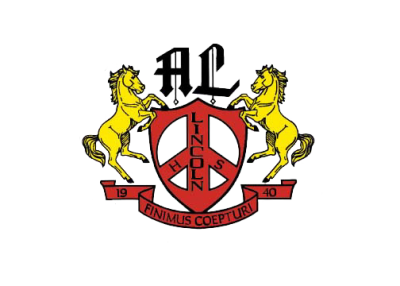What is Restorative Practices?
Restorative Practices Decoded, by Joel Balzer
“It’s all about relationship.” This quote by Duane Adamson pretty much epitomizes the truth that the power of any school resides in the interaction between students and staff. Real relationships demand a mutual commitment, empathy, give-and-take, integrity and forgiveness. Where there is relationship, there is respect and the possibility of building trust, there will be growth and there will be life! Since this self-evident reality is the reason most people went into education in the first place, the Deans’ Office will be eternally grateful for “Restorative Practices” (RP).
Lincoln High School, like the rest of the SFUSD, made a commitment almost a decade ago to pursue “Restorative Practices” (RP). The district has maintained its commitment to RP even though, in the SFUSD, RP has now been repackaged as RTI (“RTI” translated, in some kind of a bizarre victory of marketing over clarity, means “Response To Intervention,” and is a trademarked program of “intervention strategies” cobbled together by the particular consultants the SFUSD contracted with to train city staff). In reality the best parts of RTI are RP.
As stated on the link, RP:
- Acknowledges that relationships are central to building community.
- Ensures equity of voice amongst all members of the community. Everyone is valued, everyone is heard.
- Sets high expectations while offering supports, emphasizing doing things “with,” not “to” or “for”.
- Builds systems that address misbehavior and harm in a way that strengthens relationships and focuses on the harm done rather than only rule-breaking.
- Engages in collaborative problem solving.
- Enhances responsibility and empowers change and growth in all members of the community.
As it relates to site safety and the Lincoln Deans Office, RP must help insure the campus is safe, but we also embrace the fact misbehavior is often a symptom of deeper struggles. Bearing this in mind, “discipline” can be reframed from merely giving “consequences” that only address superficial behaviors, to empowering individual students, and the whole community, to identify and take responsibility for the life of the whole. To this end a key RP premise is “assume best intent.” When all parties believe the others are there to seek the good of the whole, then there is freedom to work together and seek agreement. Relationship!
The infamous Walt Kelly once said something to the effect that “between every person and a great idea, there stands an idiot.” Sadly this is what can happen with the implementation of RP. Instead of being treated as treasured vision, it has sometimes been smothered by cellophane wrap and presented as a “program.” When that happens disaster follows. Yet when the members of a community choose to treat one another as valued and beloved and are willing to exercise patience and compassion, beautiful experiences become the norm!
It is all about relationship!
This page was last updated on December 3, 2020

